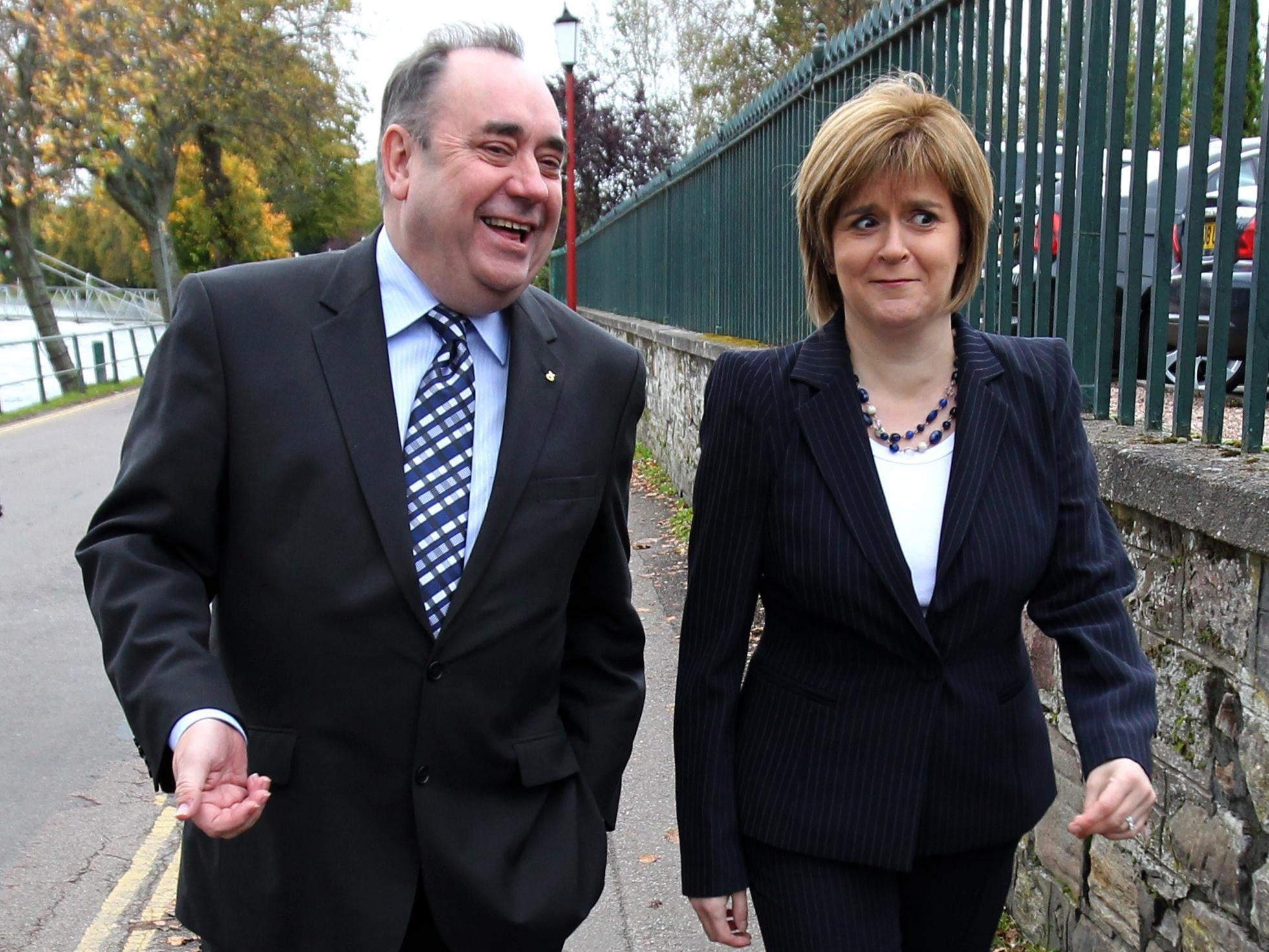Alba Party: Can Alex Salmond create a ‘super-majority’ for Scottish independence?
Former first minister wants to boost chances of pro-breakaway parliament in Edinburgh
Your support helps us to tell the story
From reproductive rights to climate change to Big Tech, The Independent is on the ground when the story is developing. Whether it's investigating the financials of Elon Musk's pro-Trump PAC or producing our latest documentary, 'The A Word', which shines a light on the American women fighting for reproductive rights, we know how important it is to parse out the facts from the messaging.
At such a critical moment in US history, we need reporters on the ground. Your donation allows us to keep sending journalists to speak to both sides of the story.
The Independent is trusted by Americans across the entire political spectrum. And unlike many other quality news outlets, we choose not to lock Americans out of our reporting and analysis with paywalls. We believe quality journalism should be available to everyone, paid for by those who can afford it.
Your support makes all the difference.Alex Salmond has rocked Scottish politics by launching his own pro-independence political party to field candidates at the upcoming Holyrood elections.
In a stunning development, the former first minister said he was creating a “new political force” called the Alba Party to contest the 6 May vote across Scotland.
After his spectacular split with Nicola Sturgeon and the SNP, Mr Salmond said his party would boost the chances of second referendum on Scottish independence – aiming to forge a “super-majority” for a breakaway.
Won’t he split the pro-independence vote?
Mr Salmond said he did not wish to split the vote among Scots who are keen on independence. The Alba Party will not challenge the SNP in the constituency contests and would be a “list-only” party.
The former first minister claimed there one million votes pro-independence votes were being “wasted” because of Scotland’s regional list system.
“We expect to field a minimum of four candidates in each regional list and we’re hoping to elect Alba MSPs from every area of Scotland,” said Mr Salmond.
Most polls have found the SNP on course for only a very narrow majority of 65 to 70 seats (65 seats are need for a majority). One recent poll has found Ms Sturgeon’s party falling short a majority by a single seat.
The SNP leader has made a majority a key element in having a “mandate” to demand another independence referendum.
Mr Salmond thinks his new outfit could help create a “supermajority” of around 90 pro-independence MSPs in the Scottish parliament – strengthening the case for “indyref2”.

What is a super-majority?
The idea of super-majority is thought to date back to ancient Rome, and has been used to mean different forms of large majorities in democratic contests.
Some common super majorities include three-fifths (60 percent) or two-thirds (66 per cent) or the votes. Until 1936, the US Democratic party’s presidential candidate was required to win two-thirds of delegates’ votes to become the party’s nominee.
Mr Salmond did not specify the proportion of pro-independence MSPs in the Scottish needed to form his desired super-majority. But he suggested a larger proportion than the narrow majority the SNP is on course to win was needed to make the push for independence credible.
Could a super-majority make a referendum irresistible?
Mr Salmond said the super-majority concept would be “fundamental” to the success of any negotiations with the UK government about Scotland’s future, whatever the desired route to independence.
“We think it’s be more difficult for Boris Johnson to say no to a parliament rather than a party,” he said. “[Having] a substantial majority of MSPs across a range of parties supporting independence, then that is a very powerful position to start independence negotiations.”
Mr Salmond suggested that whether the Scottish government demanded that No 10 grants a section 30 order to hand over the powers to stage a referendum after 6 May – or simply demands negotiations on independence – having a substantial majority would be key.
“Without that [super] majority behind you, then Boris Johnson will say, ‘No, this is an SNP fascination … this is the UK government against the SNP – and we’re entitled to say no.’”
He added: “We’ve got to cast the independence debate not as that, but rather as Boris Johnson against Scotland’s parliament.”

What’s been the response to Salmond’s plan?
SNP officials are not impressed by Mr Salmond’s big move, and claimed to be unsurprised. “This is perhaps the most predictable development in Scottish politics for quite some time,” said a spokesperson for Ms Sturgeon’s party.
“At this time of crisis, the interests of the country must come first and should not be obscured by the self-interest of someone who shows no sign whatsoever of reflecting on serious concerns about his own conduct.”
The spokesperson added: “The only way to secure strong leadership, a referendum on independence, and a positive future for the country is to cast both votes for the SNP on 6 May.”
Ruth Davidson, the Scottish Tory leader at Holyrood, said she had picked up “strong Silvio Berlusconi vibes” from Mr Salmond’s launch event – referring to the disgraced Italian populist politician who has staged multiple political comebacks over the course of his career.

Join our commenting forum
Join thought-provoking conversations, follow other Independent readers and see their replies
Comments